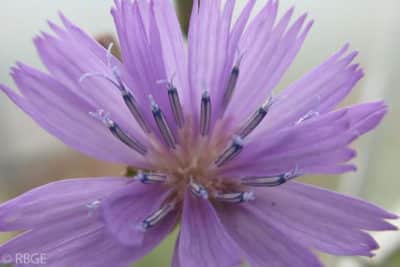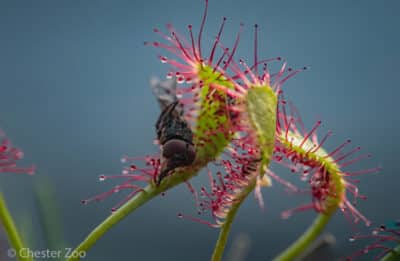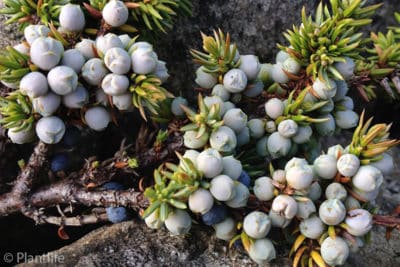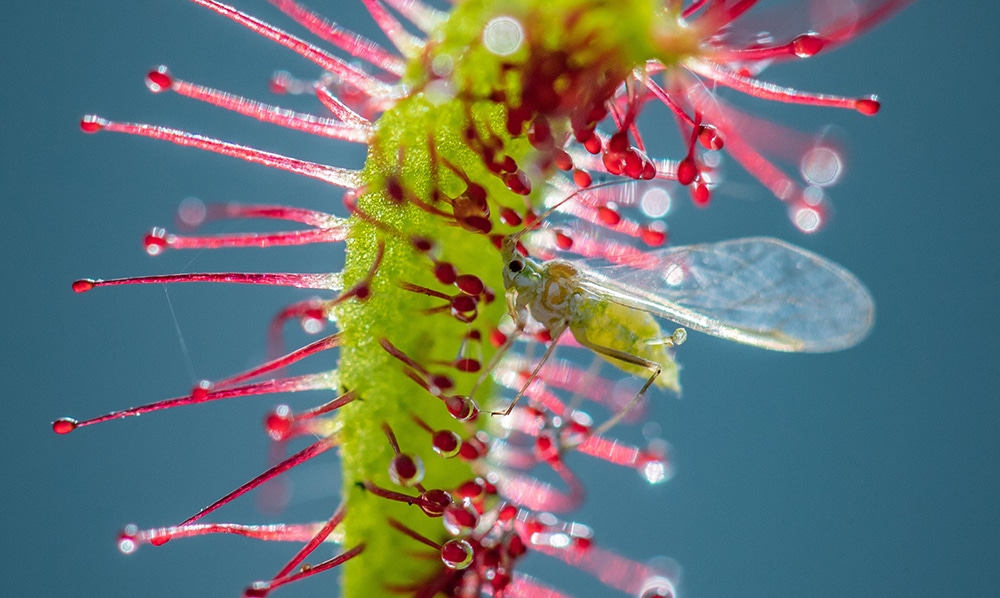Plant Stories: Part I
A tiny carnivorous sundew being reintroduced in Manchester, QR codes on trees in a college campus, a rich database to help conservationists protect the most widely traded wildlife: rosewood species, an expedition between US and Chinese botanists searching for piratebushes… the list goes on.
There is a wealth of stories from the world of plant conservation that we need to be talking about. We noticed a few of them coming through our network on the #ConservationOptimism hashtag, but due to the phenomenon of plant blindness (the human tendency to overlook plants when thinking about the environment and not appreciate the great importance of wild plants in the ecosystem and to humans), they do not get the attention they deserve.
So we decided to write a dedicated blog rounding up some of the recent inspiring stories from plant conservationists.
But we got carried away.
We found so many that we have decided to do a blog series focussing on plant stories, and we hope that by shining a spotlight on plants within our supportive conservation community, we will help fight plant blindness.
Our first blog begins close to home for us- examples of stories of plant optimism from the UK.
Clinging to a mountainside

One of the plant species that might be easy to overlook is the Alpine blue-sowthistle. It has delicate blue-violet flowers atop a thick, hairy stem and broad triangular leaves, and it is an extremely rare plant in the UK- it grows on only four rocky mountain ledges in eastern Scotland.
But, despite its elusiveness, it has not been overlooked. A joint project between Scottish Natural Heritage (SNH) and the Royal Botanic Garden Edinburgh (RBGE) is working to ensure the survival of this alpine flower by establishing a new population along a small gorge at the Water of Clunie in the centre of the village of Braemar in Aberdeenshire.
SNH Operations Officer Mike Smedley said: “The planting site by the Water of Clunie is one of several chosen to see whether it is possible to establish this species at relatively low altitude. If successful, flowers could be visible from the bridge as early as next year and at such a popular tourist spot in the heart of Braemar, this is a great opportunity to showcase nature conservation in action to thousands of people each year.”
The project also includes new signage to bring the story of the rare plant alive for visitors and locals.
Darwin’s “wicked dear little Drosera”

The English Sundew might sound like a happy, peaceful flower, but don’t be fooled by its pleasant moniker- ’tis an endangered and carnivorous sight to behold!
We are very happy to hear that this ferocious plant is making a comeback thanks to a 24-year-old from Cheshire who founded his own conservation charity to conserve rare flora around his home: the North West Rare Plant Initiative (NWRPI).
“It’s a very rare species,” Joshua Styles told the BBC about NWRPI’s latest project. “In England it’s red-listed as endangered and it occurs in less than 20 sites and hence its rarity and status instigated me wanting to reintroduce it.”
The project raised 100 sundew individuals and planted 10 on the Manchester Mosses in July 2019, in collaboration with Chester Zoo and the Lancashire Wildlife Trust. NWRPI says they are looking to the future and hoping to re-establish a healthy population here as while “many suitable areas have been drained for agriculture and housing,” Joshua explains, “causing a shocking decline in the species which rely on them, restoration work around the Mosses has made the area wetter, so it is again a perfect location for Great Sundew and other species.
A win for gin!

When most of us think of juniper, we think of cocktails, ‘G and T’s and the dry tangy taste of the famous spirit: gin. We don’t think of the prickly, sprawling conifer shrub (also known as ‘the savage tree’) with bitter, blue-black ‘berries’ (actually fleshy cones, according to Plantlife).
But maybe we should. The Juniper is the UK’s rarest native conifer (it was one of the first tree species to colonise the UK after the last Ice Age roughly 12,000 years ago), but it has been steadily declining over the past few decades due to the tricky grazing conditions it requires to grow and experts predict that it faces going extinct across much of lowland England within 50 years.
However, ten years ago Plantlife and partners created special nurseries for junipers across southern England. Junipers are hard to raise because seeds require two winters before they can germinate and then there is a fine line between enough and too much grazing in order for the seedlings to thrive.
However, by trialling techniques such as wire cages to protect young bushes from livestock and rabbits, Plantlife’s nurseries are doing well with new junipers thriving at 13 sites across six counties in south England.
The recovery of juniper will be very good news for other wildlife. In just a few years, a scrape can become home to wildflowers including orchids, kidney vetch, horseshoe vetch, fairy flax, salad burnet, oxeye daisies, and cowslips.
Over 50 insects have been recorded on juniper, including unique, rare species such as the juniper shield bug and juniper moth. Saving juniper means more than saving a single species.
Let’s fight plant blindness!

This blog is the first of many more which we will publish to highlight the importance of plant conservation and the work being done by many organisations dedicated to protecting plants.
As plants provide vital ecosystem services to every life form on earth and are inherently valuable as unique creations demonstrating the evolutionary legacy of our planet, we need to protect them- supporting conservation efforts and celebrating successes with as much enthusiasm as we do for animals.
So please share this blog, follow organisations doing important work for plants and, if you hear any good plant stories which give you conservation optimism- please let us know through our contact page or on our website.
If you are a plant conservationist and optimist who would like us to highlight your work, write a blog for Conservation Optimism or be interviewed for this series- please get in touch!


